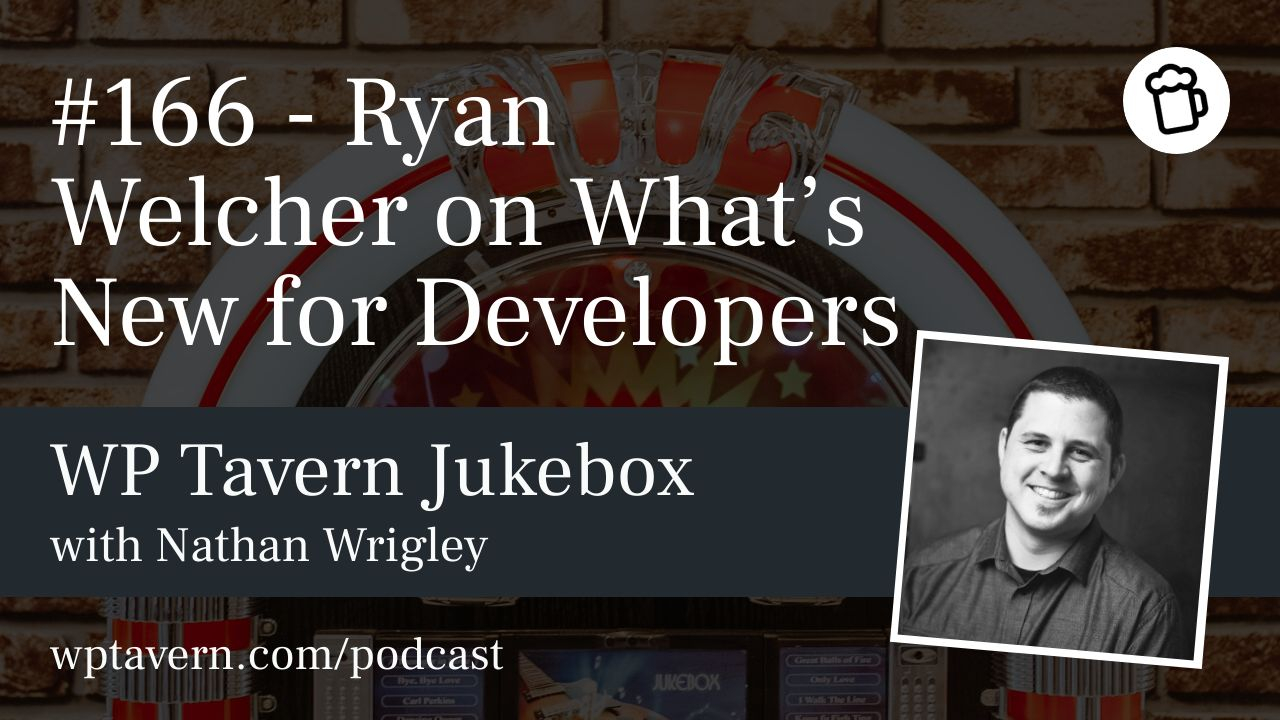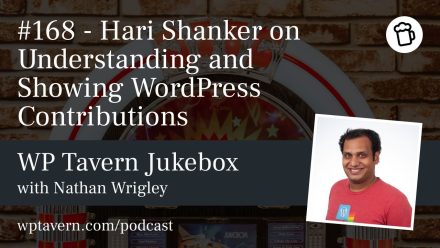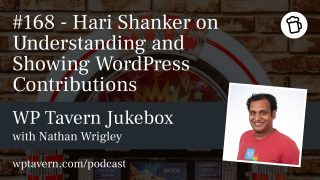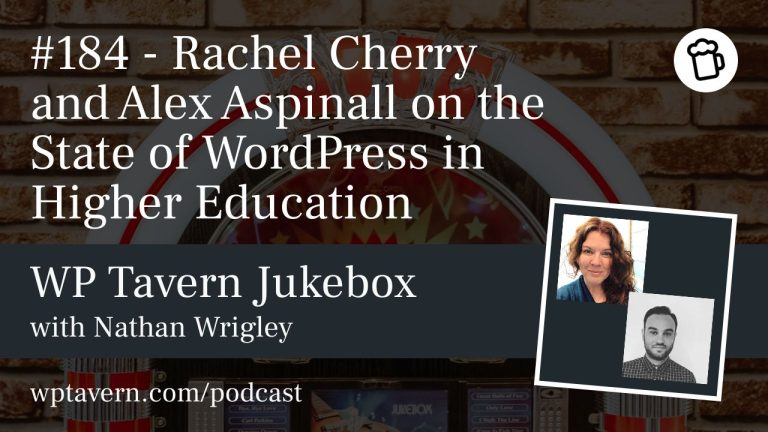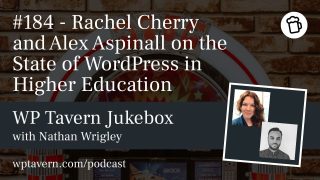Nathan Wrigley interviews Ryan Welcher on the Jukebox Podcast at WordCamp Asia 2025 in Manila. Ryan is a developer advocate sponsored by Automattic who focuses on removing barriers for developers working with Gutenberg and WordPress. He streams as RyanWelcherCodes on Twitch and YouTube and leads workshops, writes documentation and articles, and contributes to the Gutenberg project.
Workshop: Block Developer Cookbook
Ryan’s sold-out workshop, now in its second year at WordCamp Asia, is an interactive “cookbook” where attendees vote on which recipes to build. It covers block development techniques and new WordPress 6.7 features such as the Block Bindings API, Plugin Template Registration API, Preview Options API, and Data Views. The format is hands-on: attendees choose recipes and Ryan helps implement them during the session.
Background and role
Ryan’s a full-time DevRel at Automattic after agency work and years as a WordPress developer. He loves coding and public-facing work—talks, workshops, livestreams—and spends time creating docs, demos, and tooling that make developers’ lives easier. His remit is broadly to make things better for developers: producing articles, streams, and examples, and advocating for improvements.
Documentation and tooling focus
Over recent years there’s been a stronger, intentional push on documentation and learning resources (Block Editor Handbook, developer.wordpress.org, Learn). Many improvements aim to help developers transition from PHP-only workflows to modern block development with JavaScript and React. Tooling like wp-scripts and the Create Block package abstracts build/tooling complexity (webpack, bundling) so developers can focus on blocks. Ryan helps maintain and improve these tools and creates resources (live streams, articles) to lower the barrier to entry.
Where to keep up
Keeping up can feel like drinking from a firehose. Useful places:
– “What’s new in Gutenberg” posts every two weeks summarize features and changelogs.
– Make/WordPress and the Gutenberg repo for deeper details and ongoing discussions.
– WordPress Slack channels and Core/Editor meetings.
Ryan and other DevRel folks compile and demo features to make them more approachable through articles and live streams.
Key features discussed
Block Bindings API
– Purpose: connect block content to post meta or custom fields so blocks can display and edit meta inline.
– Example: use a paragraph block bound to a “job description” meta field, edit it directly in the editor, and have changes persist both ways.
– Initial support: paragraph, heading, image, and button blocks; extensible via custom bindings to integrate with third-party custom field managers.
– Impact: reduces the need for bespoke dynamic blocks for meta-driven content, enables block variations tied to meta, and simplifies workflows for implementers and clients.
Plugin Template Registration API
– Purpose: allow plugins to register templates into the active theme (e.g., single templates for a custom post type provided by a plugin).
– Benefit: plugins can ship curated default templates without requiring theme edits or complex workarounds—quality-of-life improvement for plugin authors and users.
Preview Options API
– Purpose: a slot/fill extension in the editor’s preview panel (device previews area) where plugins or blocks can add custom preview options.
– Example uses: light/dark toggles, other preview modes—any UI that fits the preview area.
Data Views
– Purpose: a JavaScript component powering list/grid views in the site editor for items like posts, templates, pages, and custom post types.
– Capabilities: filtering, sorting, multiple view modes; intended to spread across the site editor for richer, more powerful item management.
– Status: experimental and evolving. It’s powerful for providing feature-rich admin-like views in block-based editing contexts.
Zoom Out Mode
– Purpose: gives an overview of a long document or page after inserting patterns, helping users see the overall structure and move blocks more easily.
– UX benefit: especially useful on small screens or when working with long content and complex patterns.
Bits (editable subareas) and Interactivity API
– Bits: a developing concept allowing editable subparts inside a larger block output (e.g., edit just a numeric field inside a composite block without editing the whole block).
– Interactivity API: provides enhanced behaviors and dynamic interactions for block content.
– Both features open new possibilities for inline editing, fine-grained control, and richer user interactions. Bits let authors expose tiny editable regions inside a bigger rendered structure; the Interactivity API supports interactive behaviors without full-blown custom block development.
Complexity, options, and opportunity
WordPress historically favored “decisions, not options,” but Gutenberg is providing more options—greater flexibility and creative power. That can be confusing for newcomers, yet it also enables far more capability inside the editor without resorting to code. Ryan argues that increased options don’t eliminate developer work; they shift what’s valuable. Implementers and plugin builders can create libraries, UI-driven tools, and integrations that make advanced features accessible without bespoke JS on every project.
AI and developer workflows
AI is rapidly influencing developer workflows:
– Tools like GitHub Copilot and other AI assistants shorten busywork (examples, scaffolding, unit tests).
– AI can help generate code, tests, patterns, or initial implementations faster; developers still need the skills to guide, validate, and maintain the output.
– In WordPress, AI can be used to generate patterns, templates, or site scaffolds, but maintaining, debugging, and integrating those outputs still requires developer expertise.
– Ryan sees AI as an enabler—reducing repetitive tasks and powering new productivity—but not a replacement for the craft of development.
Formats Ryan uses
– Weekly livestream: Thursdays at 10:30 Eastern on Twitch and YouTube under RyanWelcherCodes.
– Writes for developer.wordpress.org/news and other documentation channels, often producing deep-dive pieces (e.g., webpack internals in WordPress) and practical introductions (SlotFill, block variations).
Final thoughts
Ryan is excited about the direction of Gutenberg and block development: better docs, improved tooling, and growing capabilities (bindings, data views, bits, interactivity). These changes make WordPress more powerful for both developers and end users, opening new possibilities for custom workflows, client projects, and hobbyist sites while creating opportunities for plugin and tool authors to bridge gaps and package complexity into usable interfaces.
Links and resources mentioned in the interview (podcast show notes) include Ryan’s streams, workshop materials, and WordPress developer resources.
